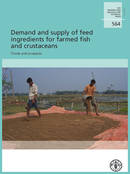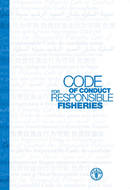Publicaciones
The document compiles the scientific information collected by the experts for the Joint FAO/IOC/WHO ad hoc Expert Consultation on biotoxins in bivalve molluscs held in Oslo, Norway, 26–30 September 2004 to answer the request of scientific advice expressed by the Codex Committee for Fish and Fishery Products (CCFFP). In order to satisfy the many requests received by FAO to disseminate the information collected over these years since 2004, the data and information available were edited...
Recreational fishing is defined as fishing of aquatic animals (mainly fish) that do not constitute the individual's primary resource to meet basic nutritional needs and are not generally sold or otherwise traded on export, domestic or black markets. Recreational fishing constitutes the dominant use of wild fish stocks in all freshwaters of industrialized countries, and it is prominent in many coastal ecosystems. The importance of recreational fisheries is increasing rapidly in many transitional economies. The...
More than 46 percent of the total global aquaculture production in 2008 was dependent upon the supply of external feed inputs. For the aquaculture sector to maintain its current average growth rate of 8 to 10 percent per year to 2025, the supply of nutrient and feed inputs will have to grow at a similar rate. This had been readily attainable when the industry was young. It may not be the case anymore as the...
Fisheries, including aquaculture, provide a vital source of food, employment, recreation, trade and economic well-being for people throughout the world, both for present and future generations and should therefore be conducted in a responsible manner.
To promote long-term sustainable fisheries, in 1995 the FAO Conference adopted the FAO Code of Conduct for Responsible Fisheries.Afterwards, in 2011, FAO published the Code of Conduct for Responsible Fisheries - Special Edition. This special edition of the Code of Conduct for Responsible Fisheries...
FAO Fisheries and Aquaculture Technical Paper No. 553 - Private standards and related certification schemes are becoming significant features of international fish trade and marketing.
Private standards and related certification schemes are becoming significant features of international fish trade and marketing. They have emerged in areas where there is a perception that public regulatory frameworks are not achieving the desired outcomes, such as sustainability and responsible fisheries management. Their use is also becoming more common in...






